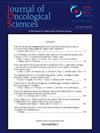Determining the Current Situation of Geriatric Oncology in Turkey: A Survey of Medical Oncologists
Q4 Medicine
引用次数: 0
Abstract
cer patients is 70 years and above.1 Recently, the rising life expectancy in the general population coupled with a disproportionate cancer burden among individuals aged 70 years and older have enthralled considerable interest in ensuring improved cancer treatment for the geriatric population.2 Significant limitation persists regarding optimal cancer treatment for older patients. Unique challenges are witnessed in the management of geriatric cancer patients. A thorough examination of the older person’s health status can aid in the assessment of risks and benefits of cancer treatment, affect the choice and intensity of treatment, and guide supportive care strategies.3 The central domains of geriatric assessment (GA) include physical and cognitive function assessment, comorbid medical problems, diet, medications, and psychological conditions.4 Despite the recommendations of the International Society of Geriatric Oncology (SIOG) and the National Comprehensive Cancer Network (NCCN), time restrictions mostly impede the systematic implementation of the application of geriatric assessment in oncology practice.5,6 To collect data without the time commitment and stress on patients and caregivers, cancer-specific geriatric evaluation tools have been designed.7 Nevertheless, the implementation of geriatric evaluation in daily medical oncology practice remains elusive.确定土耳其老年肿瘤的现状:一项医学肿瘤学家的调查
70岁及以上近年来,随着普通人群预期寿命的延长,加上70岁及以上人群的癌症负担不成比例,人们对确保改善老年人群的癌症治疗产生了相当大的兴趣对于老年患者的最佳癌症治疗仍然存在显著的局限性。老年癌症患者的管理面临着独特的挑战。对老年人健康状况的全面检查有助于评估癌症治疗的风险和益处,影响治疗的选择和强度,并指导支持性护理策略老年评估(GA)的核心领域包括身体和认知功能评估、共病医学问题、饮食、药物和心理状况尽管国际老年肿瘤学会(SIOG)和国家综合癌症网络(NCCN)提出了建议,但时间限制主要阻碍了肿瘤实践中老年评估应用的系统实施。5,6为了在没有时间承诺和患者和护理人员压力的情况下收集数据,设计了针对癌症的老年评估工具然而,在日常肿瘤医学实践中实施老年评估仍然难以捉摸。
本文章由计算机程序翻译,如有差异,请以英文原文为准。
求助全文
约1分钟内获得全文
求助全文
来源期刊

Journal of Oncological Sciences
Medicine-Oncology
CiteScore
0.10
自引率
0.00%
发文量
16
审稿时长
29 weeks
 求助内容:
求助内容: 应助结果提醒方式:
应助结果提醒方式:


